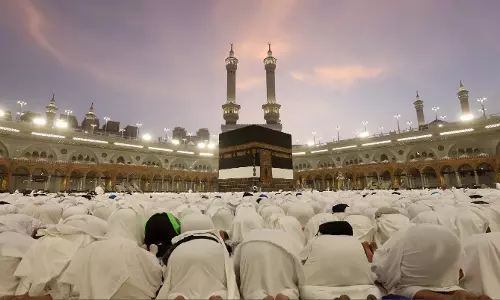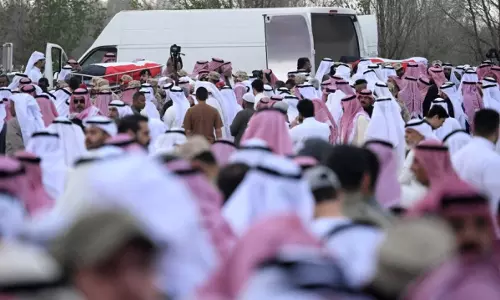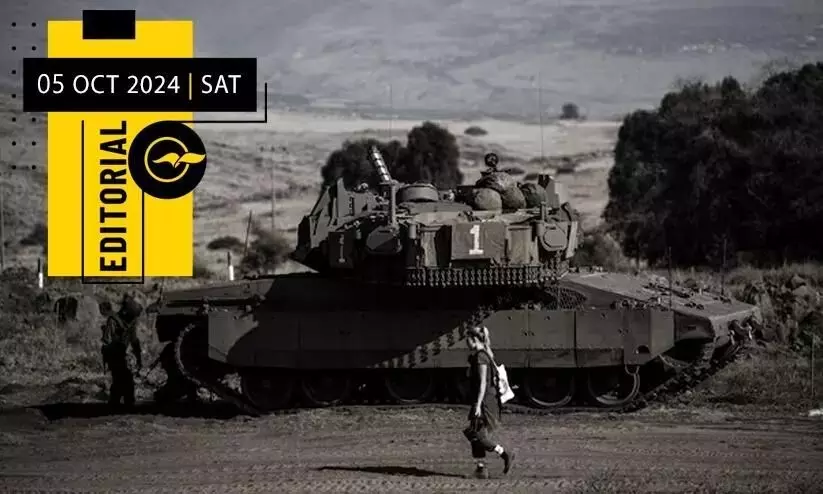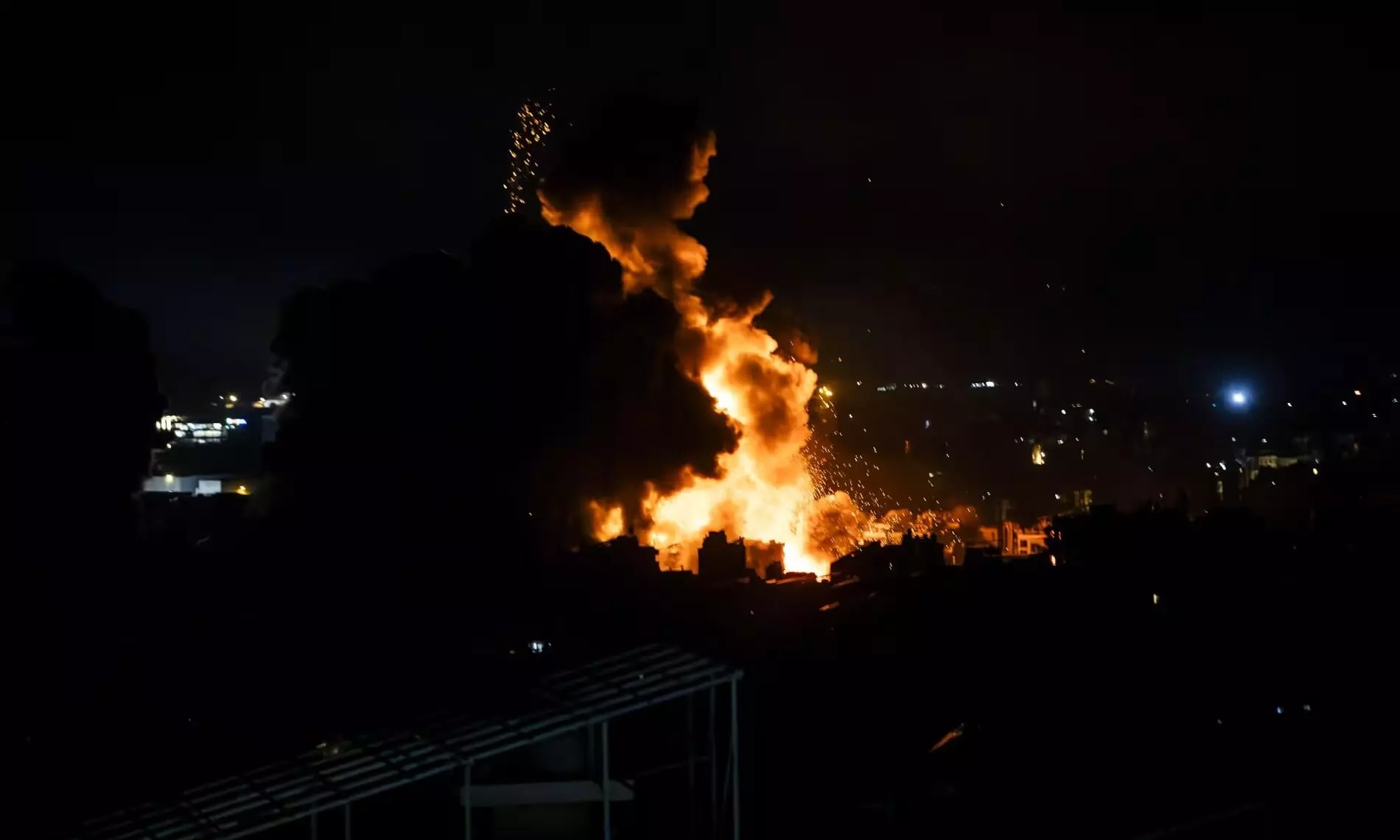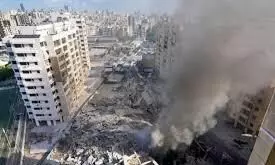
Massacre in Lebanon too
text_fieldsAs Israel’s Gaza invasion enters its second year, there are clear signs that the Middle East is on the brink of an all-out war. Ignoring international laws and effectively rendering the United Nations powerless, Israel continues its aerial attacks on Gaza unabated. 363 days into the invasion, 41,800 people have been killed; over a thousand families have been completely displaced; and more than 11,000 people are missing in Gaza. Nearly 2 million people have become refugees. Even after 90% of the population has fled and 2.5% have been massacred, Israel’s Prime Minister, Benjamin Netanyahu, declares that the hunt is not over. And to boot, he chose the UN stage to inform the world of this. Moments after his speech, news broke in Beirut, the capital of Lebanon, that Hassan Nasrallah, the Secretary-General of Hezbollah, the Lebanese ruling party and the resistant force, was killed in Israeli missile attacks. This followed Israel’s declaration of a ground war in southern Lebanon, bordering Israel, and the launch of air strikes in other areas. Israel had assassinated Nasrallah and other Hezbollah leaders and commanders. Now, a direct ground war has also begun in Lebanon, with the latest reports indicating that a missile has hit the courtyard of the parliament building in central Beirut. Over 1,400 people have been killed in the 10 days since the attack.
It can be said that the pager and walkie-talkie attack targeting Hezbollah leaders on 18 September marked the beginning of a new phase in the Israeli-Lebanese conflict. Until then, although there had been occasional skirmishes along the border and tensions between Hezbollah and the Israeli army over the Gaza attacks, the current level of violence was unprecedented. However, the conflict, ongoing for over four decades, has intensified due to the Gaza situation. While the US and other major powers throw their weight behind Israel in its genocide against Gaza, systematic and organised counterattacks—unlike in the past—are now coming from West Asian countries themselves. Hezbollah, Iran, and the Houthis in Yemen have resisted the Gaza invasion from the start, and Israel has faced counterattacks from these groups intermittently. The attacks on ships carried out by the Houthis in the Red Sea were no small matter for Israel. Iran's interventions, despite sanctions, have put Israel on the defensive, with the world witnessing Iranian ballistic missiles travelling up to 2,000 kilometres and striking Tel Aviv. Hezbollah’s operations in southern Lebanon pose the greatest threat to northern Israel. These simultaneous attacks from multiple fronts are unprecedented in their scale. Therefore, it is unlikely that Israeli attacks will remain as one-sided as before. Retaliation is certain, and naturally, this will pave the way for open war.
Netanyahu declared at the UN General Assembly that Israel would eliminate Hamas in Gaza and Hezbollah in Lebanon. Within a year, Israel has assassinated many leaders of both organisations, including Ismail Haniyeh, the leader of Hamas, and Hassan Nasrallah, the head of Hezbollah. Furthermore, all the attacks carried out by Israel are concentrated in civilian areas. There have also been reports that Israel has used chemical weapons, including white phosphorus, in Lebanon. This suggests that Israel is aiming for genocide, not merely targeting leaders. The current attacks in Lebanon are strikingly reminiscent of the events of 2006. In the 2006 war, which lasted over a month starting on 12 July, more than 1,500 Lebanese civilians were killed, and 1 million people fled. The intensity of the attacks increased when Israel launched a ground war in southern Lebanon. Now, even after five days of ground warfare, casualties have been reported to be higher than in 2006. Over 200,000 people have already fled to Syria. Israel is now trying to turn southern Lebanon into a prison camp by preventing people from crossing the Syrian border. However, Israel may not be able to continue these military operations easily. As mentioned above, strong resistance is certain to come from many quarters. Iran's attack can be seen as an indication of this. Therefore, if these military actions continue, they are likely to lead to a major war, with significant implications for the West Asian region. Anticipating this, the US has decided to deploy more troops to the region; there are already 40,000 US troops in West Asia. The Pentagon has made it clear that more US weaponry will arrive in the coming days. In the wake of the Ukraine-Russia war, there is talk of a third world war, and the situation in West Asia is perhaps even more alarming. In short, the coming days do not look promising. The only solution to these problems is for Israel to submit to international law.




